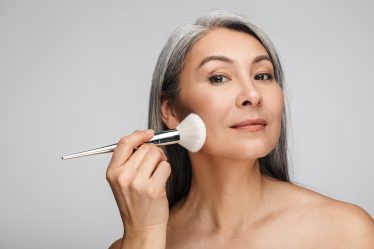
Winter brings with it the joys of cozy sweaters, hot cocoa, and festive cheer. However, it also ushers in cold, dry air that can wreak havoc on our skin. As temperatures drop, our skin tends to become drier, flakier, and more prone to irritation. To combat these winter woes and keep your skin smooth and hydrated, it’s essential to establish a comprehensive skincare routine tailored to the season’s unique challenges.
Understanding Winter Skin Concerns
Winter weather presents several challenges for skin health. The drop in humidity levels leads to decreased moisture in the air, causing the skin to lose its natural hydration. As a result, many individuals experience dryness, flakiness, and increased sensitivity during the colder months.
Hydration: The Key to Winter Skin Care
Hydration is paramount in winter skincare. Opt for moisturizers rich in hydrating ingredients such as hyaluronic acid, glycerin, and ceramides. These ingredients help replenish lost moisture and strengthen the skin’s natural barrier, preventing dehydration and maintaining a smooth, supple complexion.
Protecting Your Skin from Harsh Elements
In addition to moisturizing, it’s crucial to shield your skin from harsh winter elements. Apply a broad-spectrum sunscreen daily to protect against harmful UV rays, even on cloudy days. Don’t forget to pamper your lips with a nourishing lip balm and keep your hands soft and smooth with a hydrating hand cream.
Gentle Cleansing for Winter Skin
Avoid harsh cleansers that strip the skin of its natural oils, opting instead for gentle, hydrating formulas. Wash your face with lukewarm water, as hot water can further dry out the skin. Consider incorporating the double cleansing method to effectively remove makeup and impurities without compromising the skin’s moisture barrier.
Exfoliation: A Gentle Approach
While exfoliation is essential for maintaining smooth, radiant skin, it’s important to adopt a gentle approach during the winter months. Choose mild exfoliants that won’t exacerbate dryness or irritation, and limit exfoliation to once or twice a week to avoid overdoing it.
Special Care for Sensitive Areas
Sensitive areas such as the eyes, dry patches, and the neck and décolletage require special attention during winter. Invest in a nourishing eye cream to combat dark circles and fine lines, and soothe dry patches with hydrating serums or balms. Don’t forget to extend your skincare regimen to the often-neglected neck and décolletage area.
Diet and Hydration for Healthy Skin
Healthy skin starts from within, so be sure to stay hydrated by drinking plenty of water throughout the day. Incorporate hydrating foods into your diet, such as fruits, vegetables, and omega-3-rich fish. Limit your intake of caffeine and alcohol, as these can dehydrate the skin and exacerbate winter woes.
Protecting Skin at Night
A nighttime skincare routine is essential for repairing and replenishing the skin while you sleep. Consider incorporating overnight masks and treatments into your regimen to lock in moisture and wake up to a glowing complexion. Opt for silk or satin pillowcases to prevent friction and maintain skin hydration.
Hydrating Body Care
Don’t neglect the rest of your body when it comes to winter skincare. Invest in a rich body moisturizer to keep your skin soft and hydrated, paying extra attention to dry elbows and knees. Remember to hydrate from within by drinking water regularly throughout the day.
Managing Winter Skin Conditions
Individuals with skin conditions such as eczema and psoriasis may experience flare-ups during the winter months. Consult a dermatologist for personalized recommendations and consider incorporating gentle, fragrance-free products into your skincare routine. Over-the-counter treatments may also provide relief from itching and inflammation.
Incorporating Hydrating Treatments
Give your skin an extra boost of hydration with hydrating treatments such as facial mists, serums, and sheet masks. Facial mists are perfect for on-the-go hydration, while serums deliver concentrated moisture deep into the skin. Treat yourself to a weekly sheet mask session to replenish lost moisture and revive dull, dehydrated skin.

DIY Winter Skincare Remedies
For those who prefer natural skincare solutions, consider trying DIY winter skincare remedies using ingredients readily available in your kitchen. Homemade hydrating masks, DIY lip scrubs, and natural remedies such as honey and avocado can help soothe and nourish dry, winter skin.
Winter Skincare for Different Skin Types
Tailor your winter skincare routine to suit your skin type. Those with oily skin may benefit from lightweight, oil-free moisturizers, while individuals with dry skin may require richer, more emollient formulas. Combination skin types can benefit from targeted treatments for different areas of the face.
Conclusion
As temperatures plummet and winter sets in, it’s essential to prioritize your skin’s health and hydration. By adopting a comprehensive skincare routine tailored to the season’s challenges, you can keep your skin smooth, supple, and hydrated all winter long. Remember to moisturize regularly, protect your skin from harsh elements, and nourish it from within for a radiant complexion year-round.
FAQs
- How often should I moisturize my skin during winter?
- Aim to moisturize your skin at least twice a day, especially after cleansing and before bedtime.
- Can I use the same skincare products year-round?
- While some products may work well year-round, it’s essential to adjust your skincare routine based on seasonal changes and the specific needs of your skin.
- What should I look for in a winter moisturizer?
- Look for hydrating ingredients such as hyaluronic acid, glycerin, and ceramides, as well as rich, emollient textures that lock in moisture.
- Is it necessary to wear sunscreen in winter?
- Yes, it’s crucial to wear sunscreen year-round, as UV rays can penetrate clouds and cause skin damage, even on overcast days.
- How can I soothe dry, irritated skin during winter?
- Incorporate gentle, hydrating products into your skincare routine, avoid harsh cleansers, and consider using soothing ingredients such as aloe vera and oatmeal.


